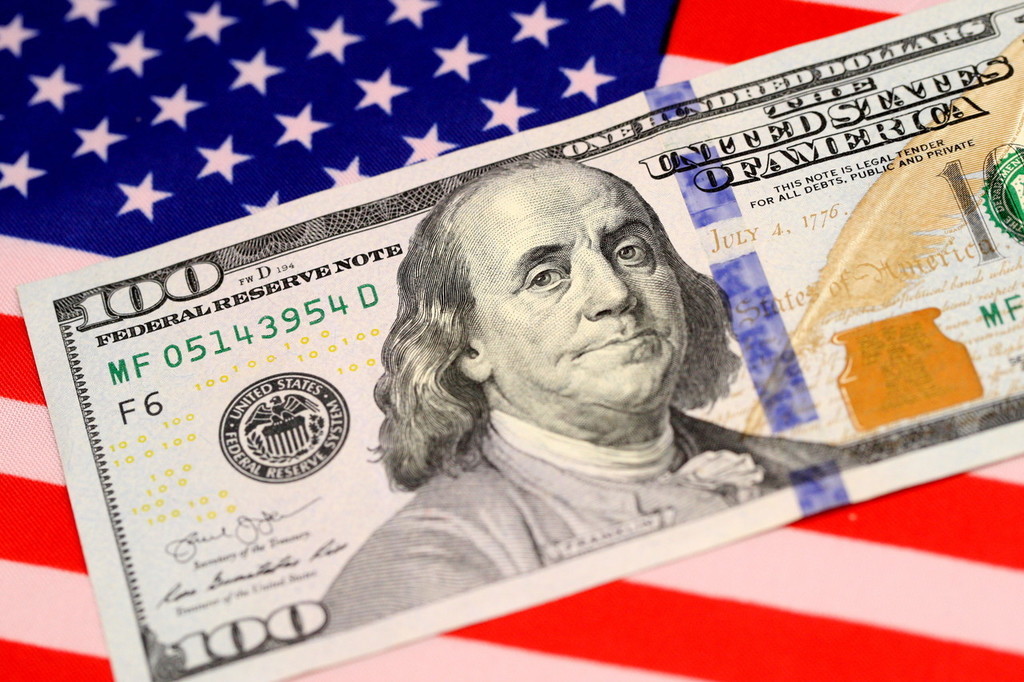Dollar is losing its grip as world's undisputed international currency
China Daily Global | Updated: 2019-11-06 08:45

In a little remarked anniversary earlier this year, the United States dollar chalked up three-quarters of a century as the world's undisputed international currency.
It was in 1944 that representatives of world governments traveled to the small New England resort of Bretton Woods to devise a financial system for the post- World War II era.
What emerged was a mechanism for establishing the US currency as the principal unit for trading and saving worldwide. The dollar was initially pegged to gold, an arrangement abandoned by Washington in 1971 when US reserves of the precious metal began to run short.
By the time a group of central bankers and economists traveled to Bretton Woods this year to mark the agreement's 75th anniversary, it was apparent that the continued dominance of the greenback was seriously under threat.
The rise of economic competitors, principally China, and the increasing resort to sanctions and dollar restrictions by a protectionist US administration have prompted economists to debate whether the dollar-denominated international order needs to be replaced.
Although more than 60 percent of reserves held by central banks around the world are still held in dollars and the US currency accounts for 47 percent of global payments, latest figures from the International Monetary Fund indicated a subtle shift to other currencies. Governments in China, Russia and India have at the same time increased their gold holdings.
That reflects growing concerns that the US is weaponizing the dollar to push its trade and foreign policies, such as the sanctions it has imposed on oil-producing Iran.
The Trump administration has threatened Europe itself with sanctions if it tried to set up an alternative money payment channel to allow it to continue doing business with Iran. European and other governments increasingly fear the prospect of being subject to US law when they undertake transactions that are cleared through a US bank.
As long as the dollar remains the main currency for conducting international trade, the US continues to exert influence on monetary policy elsewhere.
And, although the US continues to run huge deficits, it has the privilege of easily financing them as long as other countries want to hold on to the world's leading international currency.
The UK central bank governor, Mark Carney, is among those who have suggested that, in the long run, central bankers should move toward a multipolar economic system that would remove the need to hoard dollars.
He said a global system was needed even before China's currency is predicted to emerge as a challenger to the dollar. "The renminbi has a long way to go before it is ready to assume the mantle," he said earlier this year. But "the initial building blocks are there."
The Chinese currency presently rates fifth in the list of currencies held by central banks as foreign exchange reserves. At home, however, authorities in Beijing are pushing reforms to widen market access for financial institutions as part of an effort to increase the Chinese capital's financial influence.
At the height of the world financial crisis, Zhou Xiaochuan, then governor of the People's Bank of China, proposed a large-scale reform of the dollar-dominated system that would see a bigger role for the renminbi.
"The crisis and its spillover to the entire world reflect the inherent vulnerabilities and systemic risks in the existing international monetary system," he said.
Ironically, given the role of US financial markets in sparking the 2007-08 crisis, the dollar emerged as a safe haven for foreign investors in the middle of the ensuing market turmoil. The dollar's share of global foreign exchange reserves has gone down by only two percentage points since then.
In the longer term, however, the shift in the world's economic focus toward Asia and away from a less competitive US could hit the value of US company shares and dollar-denominated assets.
Even if trade relations between China and the US improve, the prospect of fading US economic growth and further cuts in US interest rates is expected to further push the de-dollarization of the world economy.
Some economists predict the dollar could lose as much as half its value against other world currencies in coming years, making it a much less attractive asset to hold.
As countries such as China and Russia find alternatives to conducting bilateral trade, they can reduce their reliance on dollars. The same goes for Europe and other parts of the world.
And, if the current and future US administrations are tempted to wield their currency as a weapon to advance their economic and political policies, they are likely only to hasten the day on which the mighty dollar no longer reigns supreme.
Harvey Morris is a senior media consultant for China Daily UK
























